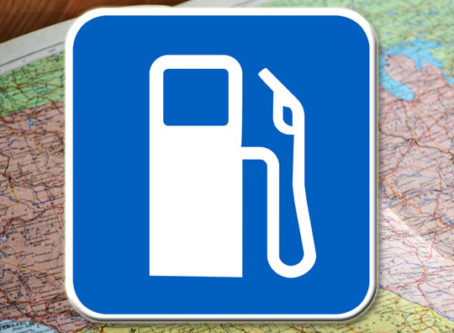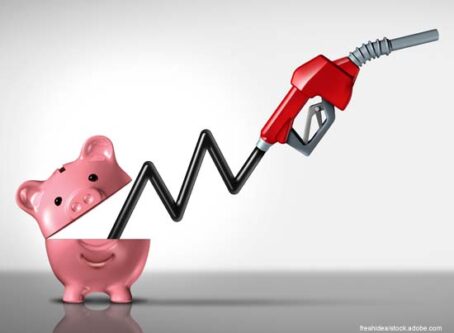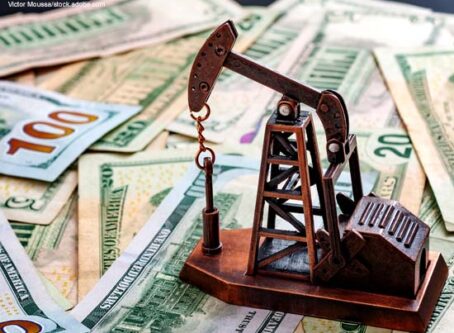Officials in 10 states adopt, pursue higher fuel tax rates
During the past six years, nearly 30 states have raised or reformed their fuel tax rates. Despite the progress made to address transportation funding needs, legislators in more and more states continue to pursue additional revenue enhancements.
The Owner-Operator Independent Drivers Association believes increasing the fuel tax is the most equitable way for states to generate additional revenue.
In the first months of 2019 legislators in Alabama, Arkansas and Ohio voted to boost road funding largely via higher fuel taxes.
The new Alabama law will raise the state’s fuel tax rates by a dime.
The state now collects 18 cents per gallon on gas and 19 cents on diesel. The fuel rates have remained unchanged since 1992.
Existing tax rates will increase by 10 cents over three years to 28 cents and 29 cents, respectively. Effective Sept. 1, the tax rates will be raised by 6 cents. Additional 2-cent increases will occur in October 2020 and 2021.
The additional tax collection would raise $323 million annually when fully implemented.
Also included is a plan to index the state’s excise tax rate. The change to indexing allows for the fuel tax to rise automatically with the rate of inflation.
In nearby Arkansas, a new law will raise nearly $95 million annually for the state Department of Transportation. About one-third of the revenue will come from a new wholesale tax collected on fuel purchases.
Unchanged since 1999, the state collects a 21.5-cent excise tax on gas purchases. A 22.5-cent fuel tax rate is collected on diesel purchases.
The change approved by lawmakers will implement a wholesale fuel tax that amounts to a 3-cent-per-gallon gas tax increase. Effective Oct. 1, the new rate will be 24.5 cents. At the same time, the diesel tax will increase by 6 cents to 28.5 cents.
The new tax will also be indexed to increase by up to one-tenth cent per year over the next decade.
The wholesale fuel tax is estimated to raise $59 million annually.
A two-year transportation budget deal reached early this month in Ohio will raise another $865 million annually via state fuel tax collection.
The budget deal includes increases to the state’s 28-cent tax rate on gas and diesel.
Specifically, the gas tax will increase by 10.5 cents to 38.5 cents. The diesel rate will increase by 19 cents to 47 cents.
“This is something that had to be done,” Gov. Mike DeWine said during a news conference following the deal.
“We have some money for safety and some money for new projects. I’m very pleased.”
Meanwhile, efforts at statehouses around the country continue to pursue additional road revenue at the fuel pump.
Illinois
The state of Illinois now collects 19 cents on each gallon of gas sold and 21.5 cents on diesel. The fuel tax rates are unchanged since 1990.
One bill awaiting a House floor vote would give local governments authorization to collect their own fuel tax. HB102 states that locales could add up to 3 cents per gallon for gas and diesel fuel sold.
Voters must first pass a local ordinance to permit collection of the additional taxes.
A separate bill in the Senate calls for raising the state’s fuel tax rates and vehicle fees. The additional taxes and fees are estimated to raise $2 billion annually.
Specifically, the taxes on gas and diesel would be raised from their current fuel tax rates to 38 cents per gallon.
Sponsored by Senate Transportation Committee Chairman Martin Sandoval, D-Chicago, SB103 would tie the taxes to inflation, but increases would be capped at up to a penny per year.
The counties of McHenry, DuPage and Kane would also be allowed to double their local fuel taxes from 4 cents to 8 cents per gallon. Each of the above counties and the other Chicago area counties would have permission to tie their local taxes to inflation.
Louisiana
The regular session began this week in the Bayou State. Among the issues expected to draw consideration in the coming weeks is a bill to raise the state’s 20-cent fuel tax rate.
Sponsored by Rep. Steve Carter, R-Baton Rouge, the bill would increase the gas tax by 6 cents in the first year. The diesel tax would be raised by 4 cents at the same time. Additionally, regular 2-cent increases would take effect every two years through 2031.
Once fully implemented, the gas tax rate would be set at 38 cents and the diesel tax would be 36 cents.
Each penny is estimated to raise about $30 million annually.
HB542 is in the House Ways and Means Committee.
Maine
The state of Maine now collects a 30-cent tax on gas purchases and a 31.2-cent tax on diesel sales.
Maine Department of Transportation officials have indicated the state has a $108 million yearly shortfall to cover highway maintenance needs.
Multiple efforts offered by Rep. Andrew McLean, D-Gorham, are intended to reduce the funding gap.
The first bill, LD1034, would raise the tax rates by 6.5 cents.
The excise rate on gas would be increased to 36.5 cents and the diesel rate would be raised to 37.7 cents. Additional vehicle fee increases also are included.
A second bill takes a seasonal approach to fuel tax collection. LB1157 would raise the gas tax to 37 cents starting June 1. Once the peak travel season ends on Nov. 1 the gas tax would be lowered to 27 cents – 3 cents below the current rate.
The diesel tax would remain unchanged.
During a recent hearing on LD1157, McLean acknowledged his bill likely will not go anywhere.
“This bill is a starting point,” he said. “We should find the long-term solutions that will create sustainable and predictable funding well into the future.”
Michigan
Gov. Gretchen Whitmer has not backed off from her pursuit of a deal to nearly triple the state’s fuel tax rate. The revenue would be routed into a new fund devoted to maintain and reconstruct the state’s most heavily traveled roadways.
The state now collects a 26.3-cent tax on fuel purchases. Revenue is divvied between the state DOT (39%), county roads (39%), and cities (22%). The state also charges a 6% sales tax on fuel purchases.
As part of her first budget plan, the Democratic governor wants to increase the state’s fuel tax rate by 45 cents per gallon. The tax increase would come in three 15-cent installments every six months. When fully implemented, the state’s tax rate would become the nation’s largest at 71.3 cents.
Nearly three-quarters of the anticipated $1.5 billion in new revenue would be applied to state roads. The remaining amount would go to local roads.
Michigan last raised the fuel tax rate in 2015 by 7.3 cents.
Leaders in the Republican-led statehouse oppose the proposed fuel tax increase for being excessive.
Whitmer has challenged critics of her plan to come up with a better idea.
Minnesota
Gov. Tim Walz and House Democrats are pushing for more revenue via state fuel tax collections.
The Democratic governor’s two-year budget proposal would raise revenue for items that include statewide transportation projects. The main component of the budget proposal would nearly double the state’s excise tax on fuel purchases.
Walz has said the state needs $18 billion over the next two decades just to operate and maintain current infrastructure. The governor’s proposal is estimated to raise $18 billion over the next 20 years.
To help eat into the funding gap he wants to increase the 28.5-cent excise rate on gas and diesel by 20 cents over two years. At that time, the excise rate would reach 48.5 cents.
The tax increases, however, would not end there. The governor’s budget proposal also would index the tax to inflation, which would allow for regular increases.
It is estimated that the fuel tax rate increases would raise about $6.5 billion over 10 years.
The House Democrats plan would raise the fuel tax rate by 5 cents annually over four years. There is no indexing component included in the plan.
Senate Republicans oppose a tax increase. Instead, they say the state would be better served to tap a $1 billion budget surplus.
Rep. Frank Hornstein, DFL-Minneapolis, counters that his party’s plan provides the state with a long-term funding solution.
“We can’t continue with the Band-Aid solutions for the potholes, deteriorating bridges, leaving transit users behind, and hope for a dependable solution,” Hornstein said in prepared remarks.
The House plan is HF1555.
Missouri
Transportation officials in Missouri say a dire situation to fund road and bridge work will only worsen until legislators get a deal done.
The state’s Department of Transportation has said there is an $825 million gap in annual road and bridge funding.
Less than six months after Missouri voters rejected a ballot proposition to raise the state’s fuel tax rate by 10 cents, the Senate Transportation, Infrastructure and Public Safety Committee voted to advance a bill to raise the state’s 17-cent-per-gallon tax by the same amount.
Sponsored by Sen. Doug Libla, R-Poplar Bluff, SB430 would raise the fuel tax rate by 6 cents over three years. The increases would applied in two-cent increments through 2021. At that time, the tax rate would reach 23 cents.
Once fully implemented, the tax would be tied to inflation to allow for regular increases.
The bill awaits further consideration in the Senate.
Wisconsin
Gov. Tony Evers recently announced his two-year state budget proposal. One component of the proposal is an increase to the state’s 32.9-cent fuel tax.
Specifically, the Democratic governor’s plan calls for an initial 8-cent increase in the state’s fuel tax to reach 40.9 cents. In 2021, the tax would be raised another 1.6 cents to total 42.5 cents.
Fuel rates also would be indexed to rise with inflation.
Leaders in the Republican-led statehouse are advocating for an income tax cut to help offset an increase in the state’s fuel tax rate.
Evers’ fuel tax increase plan would raise about $491 million over two years.









